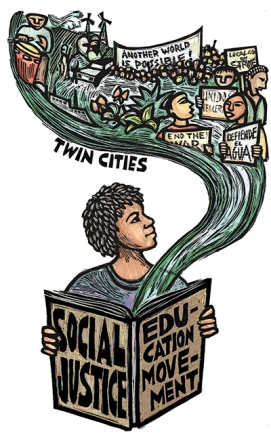April 24, 2017
In early April, the Minneapolis Star Tribune published the results of a new online survey, completed by parents with kids in the Minneapolis Public Schools. The results offer a surprising revelation: most parents in the city do not choose schools based on standardized test scores.
Like many public school districts across the country, Minneapolis has had to focus in recent years on regaining its “market share,” in an era of ever-spiraling school choice schemes. Another Star Tribune article, this one from 2015, laid the district’s challenges bare in the headline: “Thousands of Minneapolis children leave district for charters, suburban schools.” Thirty-six thousand students in the city attend the Minneapolis Public Schools, but, the article showed, more than 17,000 school-age kids do not.
The recent survey suggests that it isn’t test results, that induce parents to switch schools. Molly Leutz, a Minneapolis parent portrayed in the most recent article, said that test scores “didn’t even cross (her) mind” when looking at schools for her young daughter. Instead, word of mouth among parents, as well as “diversity,” ranked high on Leutz’s list. In the end, she chose to send her daughter to their neighborhood public school.
Other parents echoed Leutz’s priorities. Sixty percent of the 2,000 survey respondents based their decision on two factors: after-school opportunities (and other enrichment programs) and the “makeup of the student body.” These results further reflect studies done with parents in other communities, such as New Orleans. In 2015, National Public Radio education reporter, Anya Kamenetz, published a story showing that New Orleans parents—who live in what is supposed to be the most “choice-filled” city in the United States—do not put academic factors first.
“Parents, especially low-income parents,” Kamenetz found, “actually show strong preferences for other qualities like location and extracurriculars” when choosing schools for their kids. Despite the efforts of outside education reform interests, which have sought to create a network of New Orleans-style charters in place of neighborhood schools, “distance matters a lot” to parents there. This implies that, when it comes to school choice, community and convenience outweigh perceptions of test-driven success.
The Minneapolis survey also found parents ranked old-fashioned techniques such as report cards and parent-teacher communication much more highly than standardized test scores for “gauging student success.” Parents also believed that “hearing from a child” was more important than test scores “when grasping how a child is performing in school.” Perhaps even more compelling, the Minneapolis survey indicates that white and Asian parents were far more likely than black, Latino and Native American parents to “look to” test scores.
The article does not delve into why this may be true, but it does stand to reason that parents of kids who tend to score the highest on standardized tests—i.e., white and Asian-American students—may place more value on such outcomes. White and Asian-American students also, statistically, tend to be wealthier than other students, and standardized test results often reflect a student’s socioeconomic status.
In 2013, a survey of parents in Georgia by the Thomas B. Fordham Institute (a conservative think tank that typically favors charters) also showed that a majority of parents identified non-academic factors as the primary reason why they chose one school over another. The Georgia survey was done to support the concept of tax-credit scholarships (also known as “neovouchers”), used to send more students to private school.
In a way, the effort backfired. Less than 10 percent of parents said they looked for “higher standardized test scores” when selecting a school. Instead, things like smaller class sizes, safety and a “better learning environment” mattered more. Currently, many states are in the throes of preparing school accountability plans, as required by the federal Every Student Succeeds Act. While the transition to the Trump administration has brought some uncertainty for this new education policy, so far, it will allow states to move away from an over reliance on test-based measures of success.
Survey results such as the ones from Minneapolis should, if taken seriously, help policymakers understand that school choice systems built around standardized test scores may not be as important as having a safe, welcoming school in every neighborhood, where relationships and teacher-parent communication rank high.
–Originally published by The Progressive on April 20, 2017



 worker. Until recently, Vang worked at the district’s
worker. Until recently, Vang worked at the district’s 